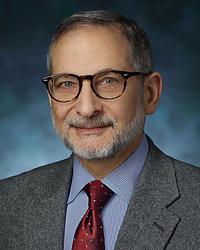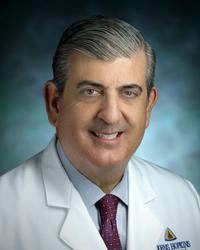Research Lab Results
-
Haughey Lab: Neurodegenerative and Neuroinfectious Disease
Dr. Haughey directs a disease-oriented research program that address questions in basic neurobiology, and clinical neurology. The primary research interests of the laboratory are: 1. To identify biomarkers markers for neurodegenerative diseases including HIV-Associated Neurocognitive Disorders, Multiple Sclerosis, and Alzheimer’s disease. In these studies, blood and cerebral spinal fluid samples obtained from ongoing clinical studies are analyzed for metabolic profiles through a variety of biochemical, mass spectrometry and bioinformatic techniques. These biomarkers can then be used in the diagnosis of disease, as prognostic indicators to predict disease trajectory, or as surrogate markers to track the effectiveness of disease modifying interventions. 2. To better understand how the lipid components of neuronal, and glial membranes interact with proteins to regulate signal transduction associated with differentiation, motility, inflammatory signaling, survival, and neuronal excitability. 3. To understand how extracellular vesicles (exosomes) released from brain resident cells regulate neuronal excitability, neural network activity, and peripheral immune responses to central nervous system damage and infections. 4. To develop small molecule therapeutics that regulate lipid metabolism as a neuroprotective and restorative strategy for neurodegenerative conditions. -
Head and Neck Cancer Clinical Trials and Tissue Bank
The Johns Hopkins Head and Neck Cancer Tissue Bank enrolls patients and collects research specimens from Head and Neck Tumor patients, both cancerous and benign, with particular focus on Head and Neck Squamous Cell Cancer patients. It provides specimens to researchers both within the institution and outside.
-
Heng Zhu Lab
The Zhu lab is focused on characterizing the activities of large collection of proteins, building signaling networks for better understanding the mechanisms of biological processes, and identifying biomarkers in human diseases and cancers. More specifically, our group is interested in analyzing protein posttranslational modifications, and identifying important components involved in transcription networks and host-pathogen interactions on the proteomics level, and biomarkers in human IBD diseases. -
Henry Fessler Lab
Research in the Henry Fessler Lab is focused on pulmonary medicine. We are interested in heart-lung interaction, mechanical ventilation and lung mechanics. We’re also interested in medical education and recently examined contemporary strategies for effective lecturing.
-
Henry Michtalik Lab
Researchers in the Henry Michtalik Lab are interested in patient safety—particularly as it relates to patient census statistics and acute to primary care transitions—and quality improvement and systems management.
-
HEPIUS Innovation Lab
Led by Drs. Nicholas Theodore and Amir Manbachi, the HEPIUS team unites neurosurgeons, biomedical engineers, scientists, radiologists and other physicians to treat and diagnose spinal cord injuries -
Hey-Kyoung Lee Lab
The Hey-Kyoung Lee Lab is interested in exploring the cellular and molecular changes that happen at synapses to allow memory storage. We use various techniques, including electrophysiological recording, biochemical and molecular analysis, and imaging, to understand the cellular and molecular changes that happen during synaptic plasticity. Currently, we are examining the molecular and cellular mechanisms of global homeostatic synaptic plasticity using sensory cortices as model systems. In particular, we found that loss of vision elicits global changes in excitatory synaptic transmission in the primary visual cortex. Vision loss also triggers specific synaptic changes in other primary sensory cortices, which we postulate underlies sensory compensation in the blind. One of our main research goals is to understand the mechanisms underlying such cross-modal synaptic plasticity. We are also interested in elucidating the events that occur in diseased brains. In collaboration with other researchers, we are analyzing various mouse models of Alzheimer's disease, especially focusing on the possible alterations in synaptic plasticity mechanisms.
-
HIV Quality of Care
Dr. Stephen Berry’s research focuses on healthcare quality, safety and costs among persons living with HIV, both in the outpatient and inpatient settings. He conducts observational and interventional studies of sexually transmitted infection screening in HIV clinics, with a focus on improving performance to meet national guidelines. He leads observational studies of rates and reasons for hospitalizations and of 30-day readmission rates among HIV patients. He is conducting a randomized study of a nurse- and pharmacist-based team to reduce inpatient HIV medication errors and increase engagement in outpatient care among persons living with HIV who are hospitalized at The Johns Hopkins Hospital.
-
Hoffmann Lab
The Hoffmann Lab is focused on reducing TB and HIV morbidity and mortality in the low and middle income settings through behavioral and implementation science approaches. Work has focused on understanding individual-level behavior towards linkage to care and continued care engagement for HIV and TB and using this knowledge to develop approaches to increase HIV testing, linkage to care, HIV viral load suppression, and retention in care. Other work has focused on health system strategies to improve service delivery and improve adherence to best practice to guidelines-based care. The group's research includes work on the general population, corrections inmates and ex-inmates, men at risk for HIV, and recently hospitalized individuals. Most of the research has been in South Africa and elsewhere in sub-Saharan Africa.
-
Hopkins Epilepsy Epidemiology
The Hopkins Epi2 group studies risk factors for and implications of epilepsy in special populations. Ongoing research focuses on late-onset unexplained epilepsy in older adults, mortality, and sex and gender in epilepsy.

Principal Investigator

